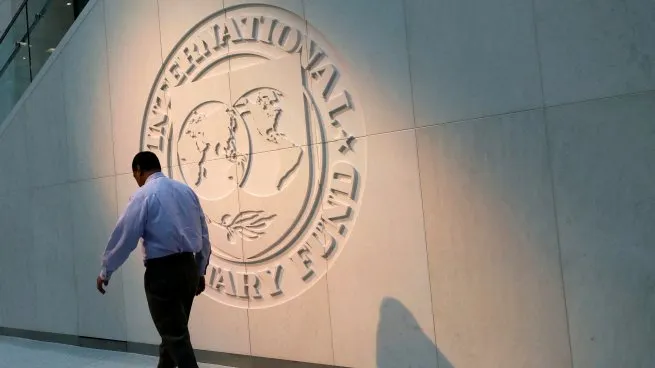The IMF office confirmed that the internal assessment of the loan will begin at the end of this month. One of the possible inputs will be from the AGN.
The Auditor General of the Nation, Graciela de la Rosa, stated that the evaluation to be carried out by the Independent Evaluation Office (IEO) of the International Monetary Fund (IMF) on the loan granted to Argentina in 2018 "is late but important". In addition, he questioned the legal framework for the subscription of the loan by the government led by Mauricio Macri and the subsequent outflow of capital.
The IMF office confirmed that the internal evaluation of the loan will begin at the end of this month, and one of the inputs will be the AGN's own report.
"I was a little surprised because we have been discussing and talking about this loan issue for a long time. The IMF's decision seems a little late to me, but it is important because it takes into account several aspects of what this loan was," de la Rosa emphasised on Saturday in an interview with Radio 10.
What did the Auditor General say about the IMF agreement?
For the auditor, there is a "shared responsibility" of both the administration of former president Mauricio Macri and the IMF itself.
"One of the issues analysed by AGN is that it was done behind the back of the National Constitution and the National Congress, and that specific regulations on financial administration were not taken into account in the signing of the agreement," he explained.
In this sense, he pointed to the actual underwriting of the loan. "There was not even a decree. It was not foreseen in the 2018 Budget Law as a source of financing since the same law did not include the need to finance such a loan of u$s45 billion," he said and indicated that there was an "abysmal" diversion in the use of funds in the investment account of the budget.
The loan, he recalled, was signed by the then finance minister, Nicolás Dujovne, and the president of the Central Bank, Federico Sturzenegger.
"In our report we say that the finance minister was not empowered by Argentine law to sign this agreement. The one who should have signed it is a finance minister because he should have done a feasibility analysis to see if Argentina was in a position to take this loan," de la Rosa said.
Finally, the auditor also pointed out that there was a responsibility on the part of the IMF itself. "Apparently one of the key issues (to be addressed in the IMF's internal audit) would appear to be the question of capital outflows. Article 6 of the Fund says that loans cannot be used for large and continuous capital outflows, which indeed happened in Argentina," she said.
He recalled that the AGN itself audited this issue and considered that there was a "continuous and considerable" output with "numbers and statistics" in this regard, although detailed data on their destination could not be obtained.



